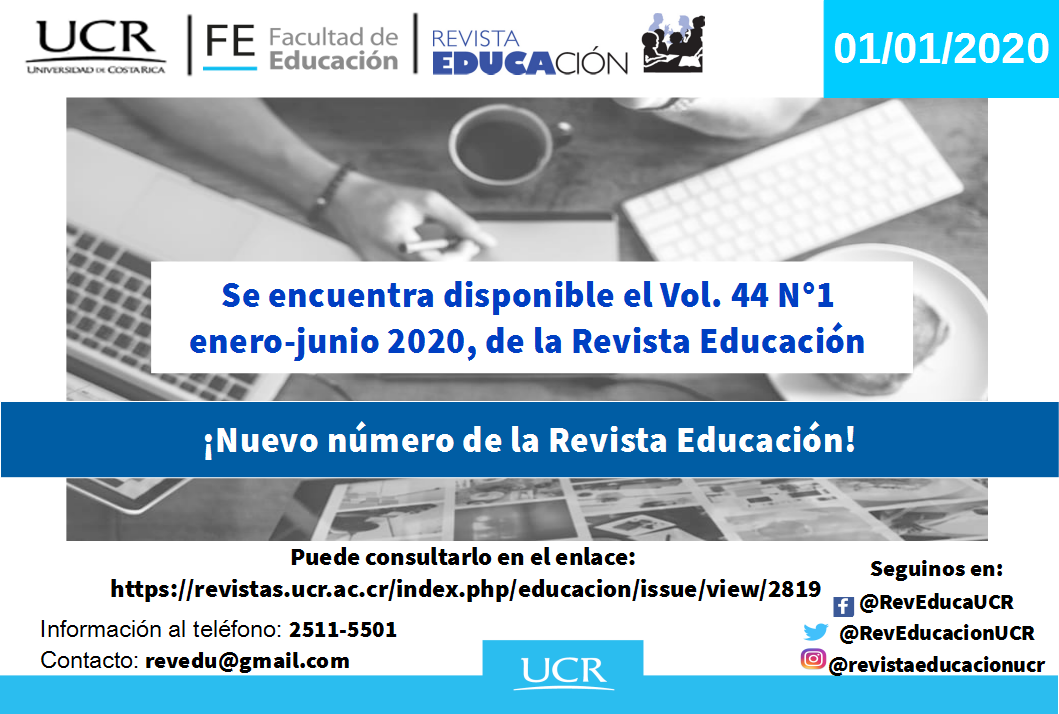Abstract
The Educational Quality Measurement System [SIMCE] has the institutional objective of improving the quality of education and keeping citizens abreast of the different types of learning achievements of the student body in Chile. However, not much tangible research has been done in this regard. The main purpose of this study is to establish a correlation between end of the year grades for 8th grade students and SICME scores attained by the students in Language and Communication, Mathematics and Natural Sciences tests. The data was collected from 8th grade students by the Quality Education Agency which pertains to Chile´s Ministry of Education. The original information included 12,586 students from the Southern Area of the country since it comprises the census of the five most important cities in Southern Chile which include Temuco, Valdivia, Osorno, Puerto Montt and Ancud which represents an extreme scenario. In order to complete this correlational analysis and unmask the results which had only took census data into account, a targeted sample was developed using the city of Temuco, the largest city, Ancud, the smallest and most remote city and a high school selected randomly among the five cities. It was determined that there is a weak relationship between SIMCE test scores and student grade point averages which proves that the national instrument used to gauge student learning in Chile´s Basic Education Cycle, differs significantly from those used by school faculty.
References
Agencia de Calidad de la Educación. (2015). Bases de Datos de la Agencia de Calidad de la Educación. Santiago, Chile. Recuperado de https://www.agenciaeducacion.cl/
Agencia de Calidad de la Educación. (2019). Sistema Nacional de Aseguramiento de la Calidad de la Educación Escolar (SAC). Chile. Recuperado de https://www.agenciaeducacion.cl/orientacion/sac/
Alfaro, L. y Gormaz, R. (2009). Análisis comparativo de los resultados chilenos en las pruebas de Matemática SIMCE y PISA. En ¿Qué nos dice PISA sobre la educación de los jóvenes en Chile? Nuevos análisis y perspectivas sobre los resultados en PISA 2006 (pp. 239-260). Santiago, Chile: Gráfica 7 Ltda.
Bravo, J. (2011). SIMCE: Pasado, presente y futuro del Sistema Nacional de Evaluación. Estudios Públicos, Estudios Públicos (123), 189-211
Campos, J. y Guerrero P. (2016). Efectos indeseados de la medición de la calidad educativa en Chile. La respuesta de la sociedad civil. Cad. Cedes, 36(100), 355-374
Conover, W. (1999). Practical nonparametric statistics. United States of America: John Wiley & Sons
Eyzaguirre, B. y Fontaine L. (1999). ¿Qué mide realmente el SIMCE? Estudios Públicos, (75), 110 - 166
Falabella, A. (2015). El mercado escolar en Chile y el surgimiento de la nueva gestión pública: el tejido de la política entre la dictadura neoliberal y los gobiernos de la centroizquierda (1979 a 2009). Educ. Soc., 36(132), 699-722.
Falabella, A. (2018). La seducción por la hipervigilancia: el caso de la educación escolar chilena (1973 – 2011). En C. Ruiz, L. Reyes y F. Herrera (Ed.). Privatización de lo público en el sistema escolar Chile y la agenda global de educación (pp. 163- 187), Santiago: LOM.
Fernández, C. (2009). Distribución de puntajes SIMCE en PISA y SIMCE 2006, en perspectiva comparada En ¿Qué nos dice PISA sobre la educación de los jóvenes en Chile? (pp. 315-326). Santiago, Chile: Gráfica 7 Ltda.
Flórez M. (2013). Análisis crítico de la validez del sistema de medición de la calidad de la educación (SIMCE). Informe final. Oxford, Inglaterra: Oxford University, Centre for Educational Assessment. Recuperado de https://bit.ly/2lGB0SQ
Inzunza, J. y Campos J. (2017). El SIMCE en Chile: historia, problematización y resistencia. En J. Alarid (Presidencia), XI Seminario Internacional de la Red Estrado. Movimientos Pedagógicos y Trabajo Docente en tiempos de estandarización. Congreso llevado a cabo en la ciudad de México, México.
Kloke J., y Mckean j. (2015). Nonparametric Statistical Methods Using R. Estados Unidos: Chapman & Hall.
Lewis-Beck, C. y Lewis-Beck, M. (2016). Applied Regresion and Introduction. Washintong DC: SAGE Publications.
Marchant, T., Lucchini, G., y Cuadrado, B. (2007). ¿Por qué leer bien es importante?: asociación del dominio lector con otros aprendizajes. Psykhe (Santiago), 16(2), 3-16.
Meckes, L. (2003). El Simce: Su desarrollo y desafíos actuales. Pensamiento Educativo, 33, 160-178.
Mullis, I. y Martin, M. (2017). PIRLS 2016 Assessment Framewok. Boston, Estados Unidos: TIMSS & PIRLS International Study Center,
Murnane, R., Waldman, M., Willett, J., Bos, M. y Vegas, E. (2017). The consequences of educational voucher reform in Chile. Massachusetts: National Bureau of Economic Research. Recuperado de https://www.nber.org/papers/w23550.pdf
Riveros, L. y Báez, G. (2014). Chile y la OCDE. La dicotomía entre macroeconómico y el desarrollo humano. Estudios Internacionales, 46(179), 9-34
RStudio Team (2016). RStudio: Integrated Development for R. Boston: RStudio, Inc. Recuperado de http://www.rstudio.com/
Rojas, A. (2008). Situación actual y perspectivas de la educación chilena desde el enfoque de derechos humanos. Santiago, Chile: Oficina Regional de Educación de la UNESCO para América Latina y el Caribe.
Ruiz, C. (2010). De la República al mercado. Ideas educacionales y política en Chile. Santiago, Chile: Lom Ediciones.
San Martin, V., Paukner F. y Sanhueza, S. (2015). ¿Cuál cable primero? El desarme del sistema educativo en Chile. Latinoamérica, 60(1),159-185
Schinske, J., y Tanner, K. (2014). Teaching more by grading less (or differently). CBE—Life Sciences Education, 13(2), 159-166.
Vegas, E. (2018). 5 lecciones de las reformas educativas recientes en Chile. Brookings. Recuperado de https://brook.gs/2lGUbfi
Waissbluth, M. (21 de julio de 2013). Las perversiones del SIMCE. La Tercera. Recuperado de https://www.latercera.com/voces/las-perversiones-del-simce/.



